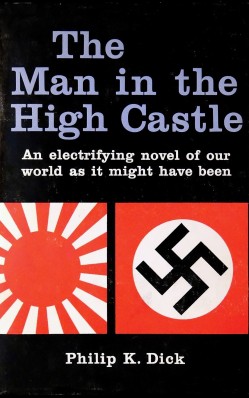 There are 2 main problems with this book: its philosophical themes are a mess, and the action/detective part of its plot isn’t well conceived. Nonetheless, it’s still a fun read.
There are 2 main problems with this book: its philosophical themes are a mess, and the action/detective part of its plot isn’t well conceived. Nonetheless, it’s still a fun read.
One of the main themes is the question of the possible “humanity” of artificial intelligence, a classic scifi theme. It is worked out poorly, because the androids themselves and the science behind them are worked out poorly. The androids are practically full-blown biological humans, except for some minor detail in their bone marrow, at least, that’s the only way for scientists to notice they are androids. Yet the androids can’t get children? They do get drunk. They can’t control their physical, sensual passions? They lack empathy, but can sometimes love each other? They die inevitably after about 4 years, because of a cell replacement problem? If so, why bother hunting them down?
Dated notions of empathy make the mess even worse: there is talk about empathy not working for carnivores, since carnivores are hunters, and would starve if they empathize with their prey. The fact that humans do hunt, is brushed aside. PKD clearly is no philosopher nor a behavioural psychologist – as empathy is observed in all kinds of animals.
Its focus on animals makes the book very quirky, and again adds to the inconsistencies. Real, live animals are a status symbol on future earth, but this choice seems mostly made because of the word play within the title. My guess is that PKD came up with the title first, and all else followed after.
Further illustration of the inconsistency of the novel is the fact that the title is not coherent with the story itself, since androids in the story are not electric, but living, organic entities, not made of electric circuits like the fake animals in the story. Moreover, PKD also fails to ask the important question whether there truly is a difference between organic nerves transporting electric signals and inorganic circuitry transporting electric signals.
The fact that the empathy tests to determine whether an individual is an android or not rely for the most part on humans’ empathy with animals is very strange too: as if an apocalyptic world war would turn us all into vegetarians. Again, PKD doesn’t prove to be a great social thinker by making these strange choices. The different relationships between humans-androids-animals-electric animals seem forced and ill-conceived.
As a result of all this, Do Androids Dream of Electric Sheep? isn’t a book that gives one new insights on what it means to be human at all. Diverse authors like Asimov and Banks have written much more interesting books on AI. Hell, even the Star Trek Voyager TV-series explored the humanity of AI in a much more interesting manner. PKD basically reduces it all to “the will to live” and “empathy”.
The other problem I hinted at in the beginning of this review is the plot. While this could have been an interesting thriller set in an SF-world, it also falls flat in that respect. The androids can’t point and shoot, and the protagonist is able to track down and kill all of his opponents mainly because of sheer luck.
Having said all that, I mostly enjoyed reading the book. It’s not too long (192 pages in my edition), Dick has some good ideas, the setting seems edgy, the atmosphere has a vibe and at times the language and imagery is excellent. So: this is not a content book, but something you read for mood.
All in all, I’m guessing Bladerunner‘s glow keeps this high in all kinds of lists. To me, it didn’t feel like a timeless SF classic. In dealing with questions about humanity and AI, Philip K. Dick just scratches the surface, in a messy, clumsy way. Yet that’s part of its appeal: clumsy is cute.
originally written on the 13th of January, 2015
Consult the author index for my other reviews, or my favorite lists.
Click here for an index of my non-fiction or art book reviews, and here for an index of my longer fiction reviews of a more scholarly & philosophical nature.
 Glad that I finally read this – the first PKD I truly liked. Reading it almost never happened, as after Flow My Tears, The Policeman Said I decided to stop seeking out more Philip K. Dick. But as I’m also slowly trying to read all big classics of scifi, I had to tackle it one day.
Glad that I finally read this – the first PKD I truly liked. Reading it almost never happened, as after Flow My Tears, The Policeman Said I decided to stop seeking out more Philip K. Dick. But as I’m also slowly trying to read all big classics of scifi, I had to tackle it one day.







